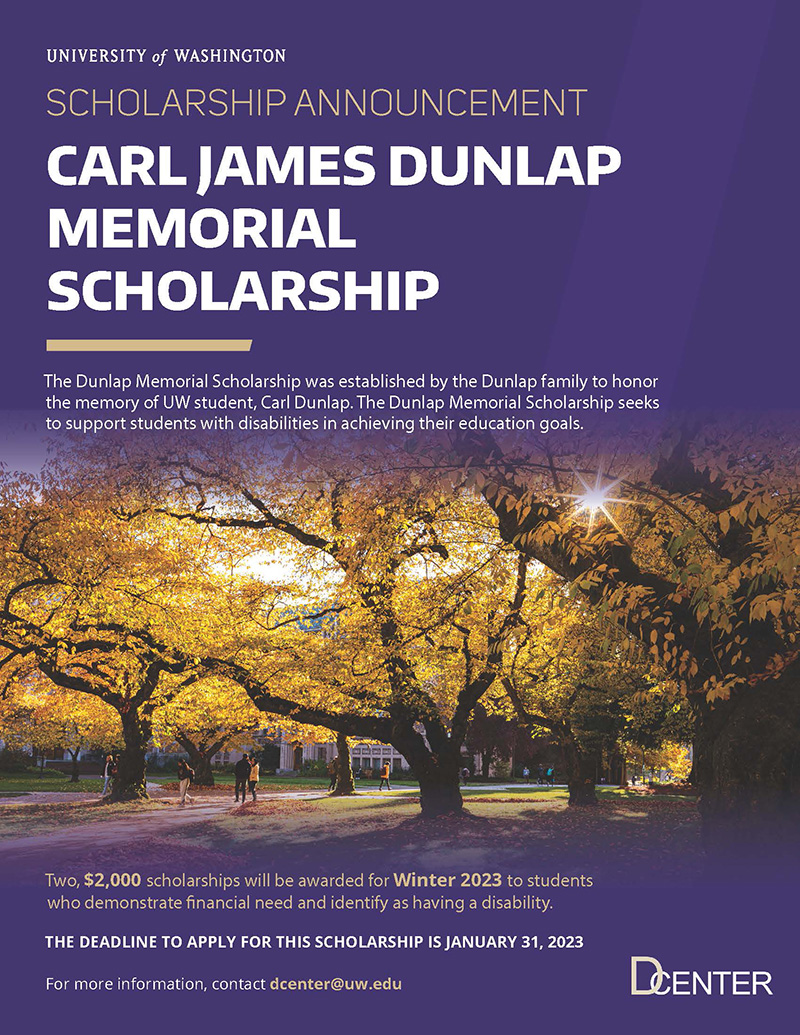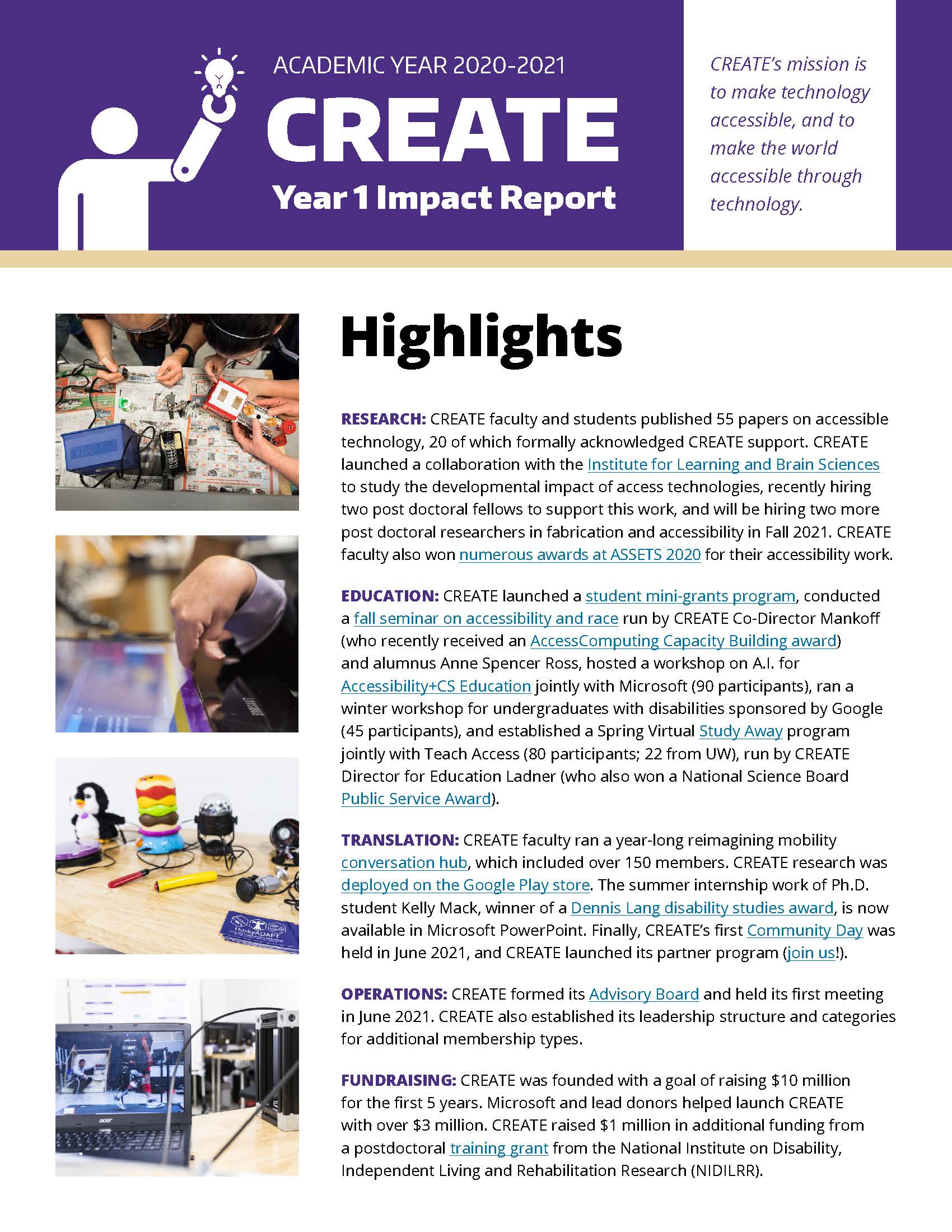January 21, 2025 We’ve rounded up some great opportunities for accessibility research, funding, and training. Most notably, deadlines are approaching for two CREATE grants: ACM CHI Workshop on Aging in Place call for participation The ACM CHI workshop on Technology Mediated Caregiving for Older Adults Aging in Place focuses on research around technological supports for caregiving, specific to older adults as they age and begin to experience cognitive changes. See also
Category: announcement-homepage
CREATE Open Source Projects Awarded at Web4All
July 6, 2023 CREATE researchers shone this spring at the 2023 Web4All 2023 conference that, in part, seeks to “make the internet more accessible to the more than one billion people who struggle to interact with digital content each day due to neurodivergence, disability or other impairments.” Two CREATE-funded open source projects won accolades. Best Technical Paper award:Understanding and Improving Drilled-Down Information Extraction from Online Data Visualizations for Screen-Reader Users Authors: Ather Sharif, Andrew Mingwei Zhang, CREATE faculty member Katharina…
Deep Gratitude to Wobbrock, Ladner & Caspi
June 13, 2023 The CREATE community thanks three of our founding leaders for their energy and service in launching the center as we embark upon some transitions. “CREATE would not be where it is today without the vision, passion, and commitment that Jake, Richard, and Anat brought to their work leading the center,” says CREATE Director Jennifer Mankoff. Co-Director Jacob O. Wobbrock: From vision, to launch, to sustainable leadership It was back in June 2019 that Jacob O. Wobbrock, CREATE’s…
Codesigning Videoconferencing Tools for Small Groups with Mixed Hearing Status
June 12, 2023 CREATE students and faculty have published a new paper at CHI 2023, ‘Easier or Harder, Depending on Who the Hearing Person Is’: Codesigning Videoconferencing Tools for Small Groups with Mixed Hearing Status”. Led by Human Centered Design and Engineering (HCDE) Ph.D. candidate Emma McDonnell and supported by CREATE, this work investigates how groups with both hearing and d/Deaf and hard of hearing (DHH) members could be better supported when using captions during videoconferences. Researchers recruited four groups…
CREATE’s Newest Ph.D Graduates
June 9, 2023 We’re proud to see these talented, passionate students receive their Ph.D.s and excited to see how they continue their work in accessibility. Alyssa Spomer, Ph.D. Mechanical Engineering Current: Clinical Scientist at Gillette Children’s Hospital, leading research in the Gillette Rehabilitation Department to improve healthcare outcomes for children with complex movement conditions. Elijah Kuska, Ph.D. Mechanical Engineering Plans: Elija will start as an assistant professor at the Colorado School of Mines in the Mechanical Engineering Department in January…
Grant Opportunity for Disability Policy, Assistance
May 25, 2023 The U.S. Department of Labor has made available $2 million for the first year of a cooperative agreement for an employer-focused, disability policy development and technical assistance center. The Employer Assistance and Resource Network on Disability Inclusion (EARN) helps employers, human resources professionals, and diversity, equity, inclusion and accessibility staff find the resources they need to recruit, hire, retain and advance people with disabilities. The deadline for application is June 23, 2023Full announcement and application instructions EARN’s…
Postdoc Research Spotlight: Making Biosignal Interfaces Accessible
April 11, 2023 The machines and devices we use every day – for example, touch screens, gas pedals, and computer track pads – interpret our actions and intentions via sensors. But these sensors are designed based on assumptions about our height, strength, dexterity, and abilities. When they aim for the average person (who does not actually exist), they aren’t usable or accessible. CREATE Post-doctoral student Momona Yamagami seeks to integrate personalization and customization into sensor design and the resulting algorithms…
Accessible eSports Showcase 2023: Event Recap
In April 2023, CREATE hosted its first ever Accessible eSports Showcase event, bringing together members of the CREATE community, local community organizations, tech and games Corporate Partners, and folks from all over the Seattle area looking to learn about and celebrate ongoing strides being made in making video games more inclusive and accessible to people with disabilities. Zillow Commons in the Bill & Melinda Gates Center was transformed into a gamer’s playground with big-screen projections of racing and party games,…
Rory Cooper, CREATE Advisory Board member, receives IEEE Biomedical Engineering Award
Congratulations to CREATE Advisory Board member Rory Cooper on receiving the 2022 IEEE Biomedical Engineering Award! For more than 25 years, Cooper has been developing technology to improve the lives of people with disabilities and his inventions have helped countless wheelchair users get around with more ease and comfort. Cooper’s first innovations in mobility were a modification to the back brace he wore after a spinal cord injury left him paralyzed from the waist down, then a better wheelchair, then an electric-powered version that…
Carl James Dunlap Memorial Scholarship

University of Washington student Carl James Dunlap had a powerful impact on the UW community with his vibrant personality and persistent advocacy for students with disabilities. To honor his legacy, the Dunlap family established the Carl James Dunlap Memorial Endowment. The Dunlap Memorial Endowment seeks to support students with disabilities encountering unique challenges when attending and completing higher education. The D Center is grateful to further Carl’s legacy by awarding two $2,000 Carl James Dunlap Memorial Scholarships to UW students…
Year 1 Impact Report

A whirlwind year of accessible technology research, education, collaboration, fundraising and recognition is highlighted in CREATE’s Year 1 Impact Report.